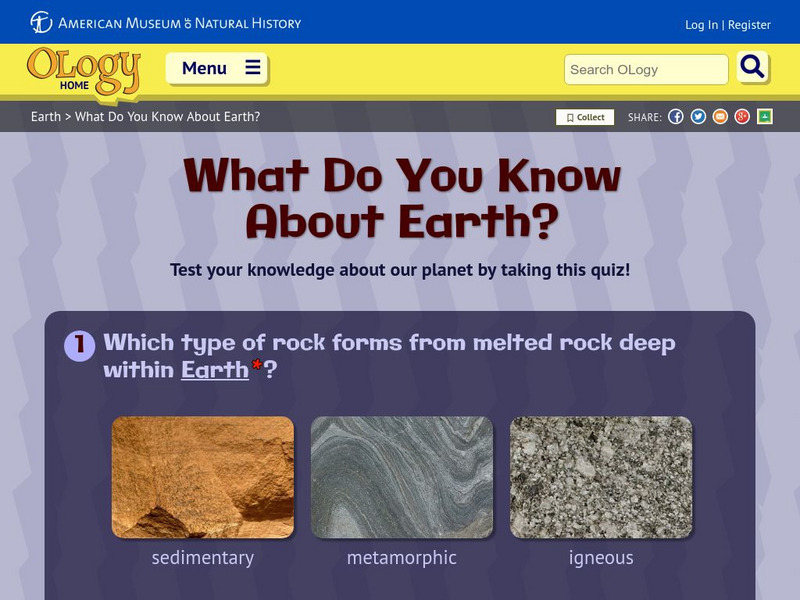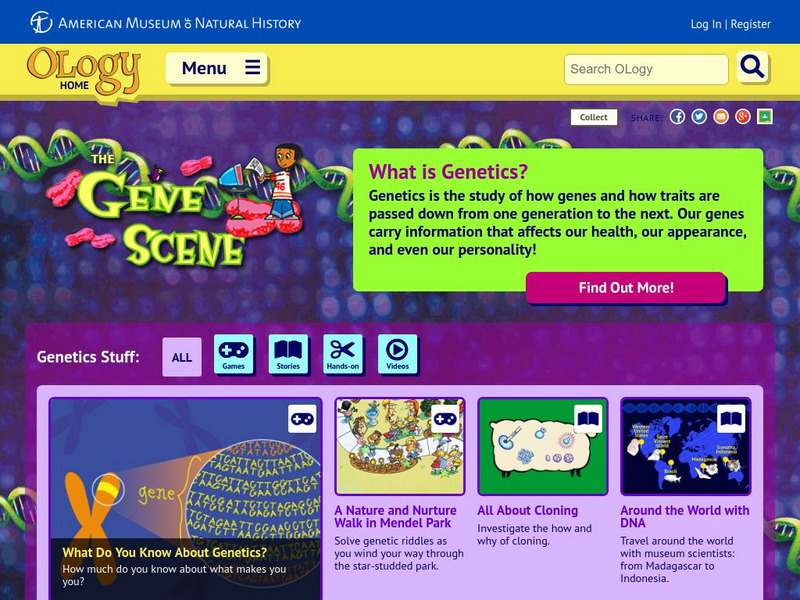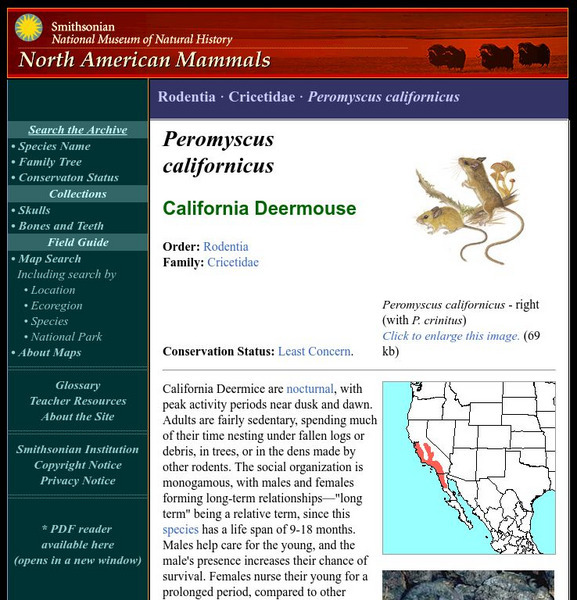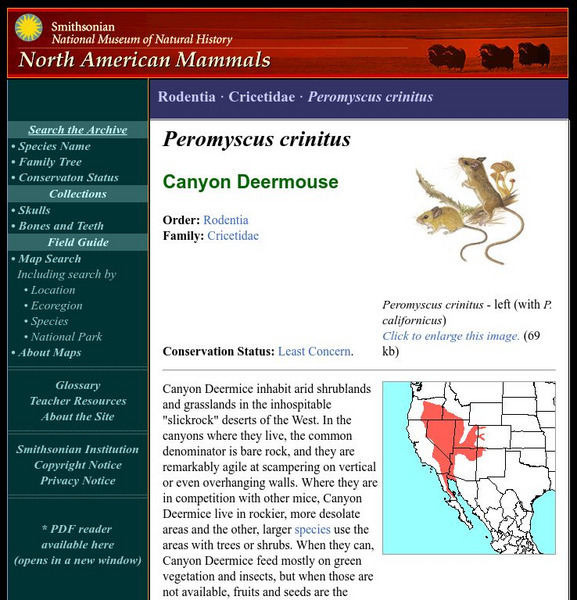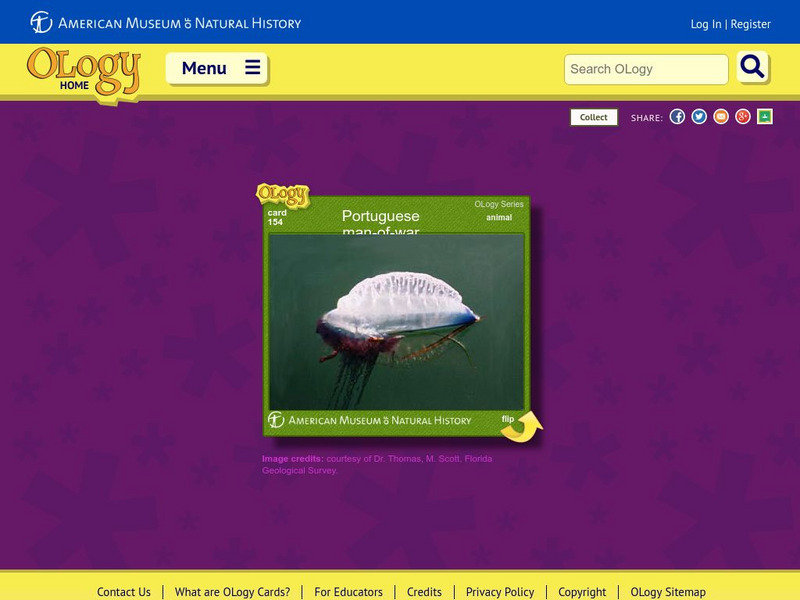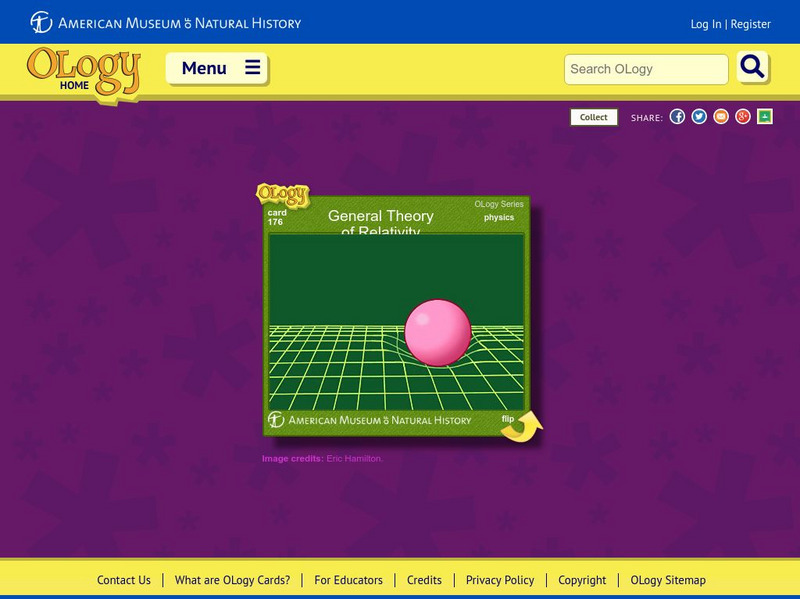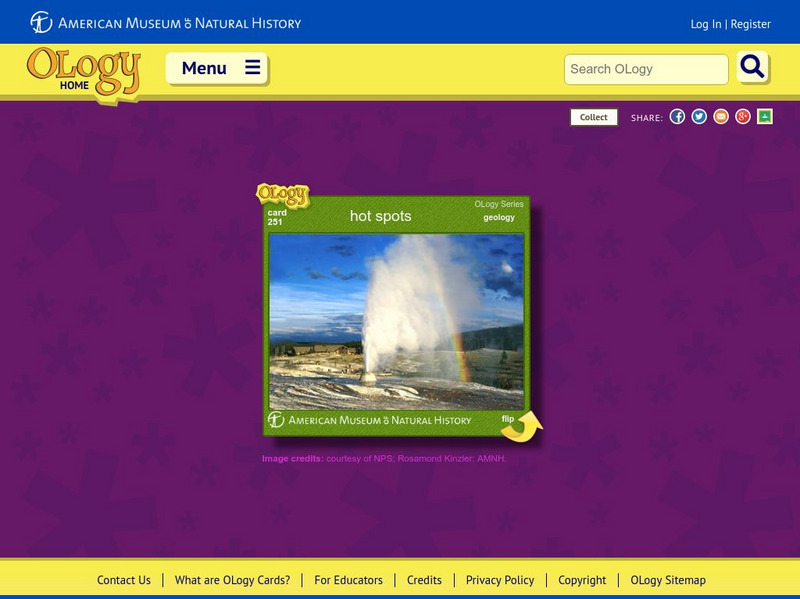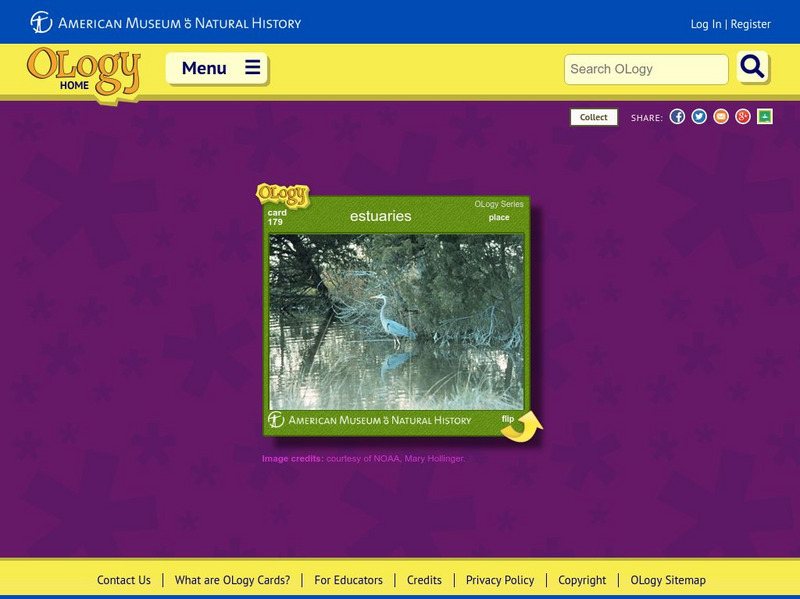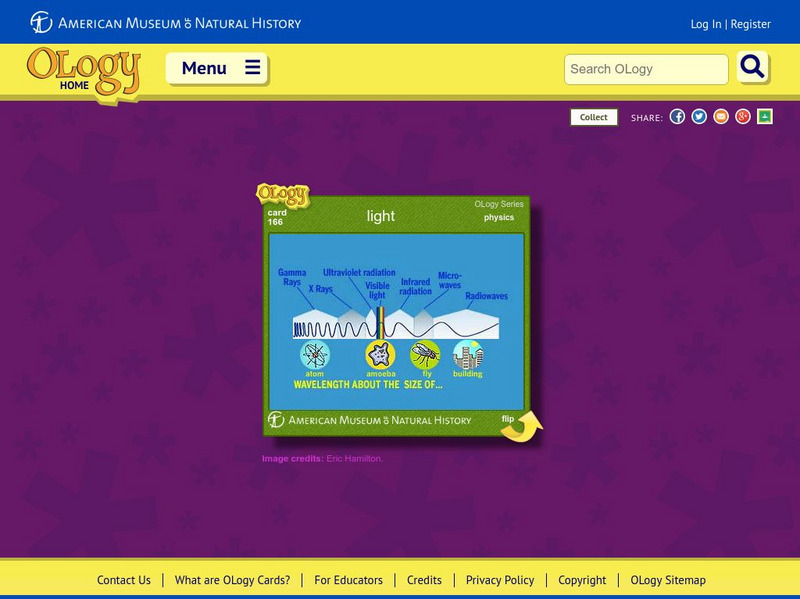American Museum of Natural History
American Museum of Natural History: Ology: See the Light
Reflection, refraction, and the colors that make up white light is explored through lab activities after reading a brief background about light energy.
American Museum of Natural History
American Museum of Natural History: O Logy: Marine Biology: The Living Oceans
This resource is a place for exploring, asking questions, finding information, meeting scientists, and learning about marine ecosystems.
American Museum of Natural History
American Museum of Natural History: O Logy: What Do You Know? Earth Science
Take a ten question quiz on the Earth's surface.
American Museum of Natural History
American Museum of Natural History: Make Your Own Mythic Mask or Puppet
Create your own masks and puppets and bring the mythic creatures to life.
American Museum of Natural History
American Museum of Natural History: If Trash Could Talk
What does your trash say about you? Take a close look inside your trash can and think about the clues it offers about your life.
American Museum of Natural History
American Museum of Natural History: Create Your Own Time Capsule
By making time capsules, we can decide what message to send to the future about our own lives. If it were discovered years from now, what would the objects say about you and the time you lived in?
American Museum of Natural History
American Museum of Natural History: See the Light
Take a look at light with these three easy experiments
American Museum of Natural History
American Museum of Natural History: Trip Up Your Brain
Try this trippy experiment to fool your brain.
American Museum of Natural History
American Museum of Natural History: Crazy Camouflage
Create a flounder fish that's hard to spot. In this hands-on activity, students gather evidence to explore how camouflage helps animals survive.
American Museum of Natural History
American Museum of Natural History: O Logy: Arctic Story Puzzles
Construct a story about the Inuit or the polar bear from a series of pictures that can be put together in a sequence.
American Museum of Natural History
American Museum of Natural History: O Logy: Genetics
This site from American Museum of Natural History focuses on Genetics. It defines genetics and provides links to games, stories, videos, and hands-on activities on the topic.
Smithsonian Institution
National Museum of Natural History: American Mammals: Banner Tailed Kangaroo Rat
The Banner-tailed Kangaroo Rat confines its activities to small areas near the large earthen mounds that contain its complex burrow systems. Usually gentle and timid, this Kangaroo Rat will fight furiously to defend its territory from...
American Museum of Natural History
American Museum of Natural History: O Logy: Saving Species
Learn why fieldwork is an important component of any scientist's career, especially among those who are actively working to preserve the Earth's biodiversity. Three American Museum of Natural History biologists tell you about their...
Smithsonian Institution
National Museum of Natural History: American Mammals: California Deermouse
California Deermice are nocturnal, with peak activity periods near dusk and dawn. Adults are fairly sedentary, spending much of their time nesting under fallen logs or debris, in trees, or in the dens made by other rodents. Learn more...
Smithsonian Institution
National Museum of Natural History: American Mammals: Canyon Deermouse
Canyon Deermice inhabit arid shrublands and grasslands in the inhospitable "slickrock" deserts of the West. In the canyons where they live, the common denominator is bare rock, and they are remarkably agile at scampering on vertical or...
American Museum of Natural History
American Museum of Natural History: Nature Versus Nurture O Logy Card
Flip this interactive OLogy card to find questions and answers, fast facts, and other bite-size pieces of information to help you understand the nature-versus-nurture debate.
American Museum of Natural History
American Museum of Natural History: Portuguese Man of War O Logy Card
Turn over this interactive card and start learning bite-size pieces of useful information about the Portuguese man-of-war, such as its diet, habitat, and physical characteristics.
American Museum of Natural History
American Museum of Natural History: O Logy: Train of Thought
Try out your ability to think like Einstein by working through two thought experiments that help explain how satellites stay in orbit and how the speed of light affects the universe.
American Museum of Natural History
American Museum of Natural History: General Theory of Relativity O Logy Card
Einstein's general theory of relativity is the subject of this interactive OLogy card. Turn it over to find fast facts, questions and answers, and other bite-size pieces of information about the theory.
American Museum of Natural History
American Museum of Natural History: Hot Spots O Logy Card
Hot spots in the earth's mantle create natural phenomena like geysers and volcanoes. Learn about hot spots by reading this interactive ology cards and answer questions when you're finished.
Smithsonian Institution
National Museum of Natural History: Human Characteristics: Tools & Foods
Learn about the history of how humans have used tools to meet their need for food, beginning with the ancient tools our ancestors used millions of years ago. Non-human primates also use some tools.
American Museum of Natural History
American Museum of Natural History: O Logy: What's the Big Idea? Paleontology
Snapshot reference on paleontology explains how the fossil record drives this area of science.
American Museum of Natural History
American Museum of Natural History: Estuaries O Logy Card
Turn over this interactive OLogy card to find fast facts, questions and answers, and similar bite-size pieces of information to help you understand the nature of estuaries.
American Museum of Natural History
American Museum of Natural History: Light O Logy Card
Flip over this interactive OLogy card and start learning bite-size pieces of useful information about light.


